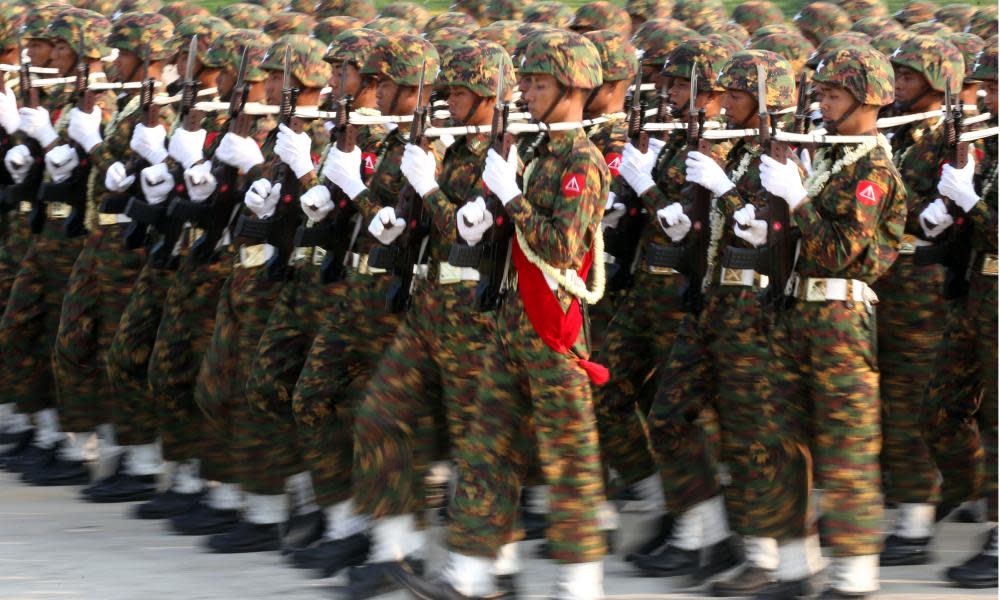Military urged to vet foreign forces trained in Australia amid human rights concerns

Australia is potentially bestowing legitimacy on foreign security forces involved in systemic human rights abuses when it provides training without prior vetting, Human Rights Watch has said.
The organisation has written to the defence minister, Christopher Pyne, urging the government to introduce vetting procedures, citing its training support of the Myanmar military despite a well-documented history of war crimes and other abuses, including possible acts of genocide against ethnic Rohingya.
More than 700,000 people have fled Rakhine state since a military crackdown in August 2017 which included tens of thousands killed, women raped and villages destroyed.
Senate estimates in October revealed the Australian department of defence does not vet military personnel from Myanmar before allowing them to take part in Australian training programs.
Australia spends $400,000 on the program which relates to humanitarian and disaster relief, peacekeeping and language skills, and operates in non-combat areas.
However, Human Rights Watch warned such training bestowed legitimacy on recipients, and the training could only be effective if combined with “buy-in up in the military chain of command and clear measures for accountability”.
“Soldiers who commit murder and rape know it’s wrong, but also know they can get away with it,” HRW’s Australia director, Elaine Pearson, said.
In August a United Nations report detailed crimes against humanity, war crimes and possible genocide committed by Myanmar’s security forces which “have so seriously violated international law that any engagement in any form with the Tatmadaw [military], in its current leadership, and its business, is indefensible.”
Departmental briefing notes have said Australia’s engagement with Myanmar forces was “designed to expose the Tatmadaw to the ways of a modern, professional defence force and highlight the importance of adhering to international humanitarian law”, a point also raised at the estimates hearing by department officials.
HRW called for the introduction of legislation similar to US laws already in place, which bar US assistance and training to foreign military units until their governments have addressed human rights abuses and held perpetrators to account.
The letter said vetting procedures should:
Occur at all levels of police and military.
Require countries to provide complete deployment histories of individuals and units flagged for Australian training.
Require countries to provide information about investigations or court proceedings involving any of them.
Require consultation with civil society groups within the country before agreeing to provide training.
The procedure should also state the consequences that would result from any individual or unit that Australia seeks to train having been credibly accused of human rights abuses which were not effectively investigated or prosecuted, the letter said.
HRW said introduction of the legislation modelled on the US’s “Leahy law” would deter foreign security forces from committing human rights abuses and help reformers within those forces.
It would also draw improved monitoring and commitments from foreign governments, and protect and improve Australia’s legitimacy and moral standing in international affairs.
Earlier this year 13 senior members of Myanmar’s security forces were accused of atrocities against the Rohingya population.
The Australian government has imposed financial sanctions and travel bans against five Myanmar officers, but HRW said human rights abuses were clearly carried out by more than the five individuals, and that its concerns were not limited to Myanmar.
“In many countries where Human Rights Watch works there is a lack of accountability for crimes committed by security forces, including extrajudicial killings, enforced disappearances and torture,” the letter to Pyne said.
Pyne’s office did not respond to requests for comment.

 Yahoo News
Yahoo News 
